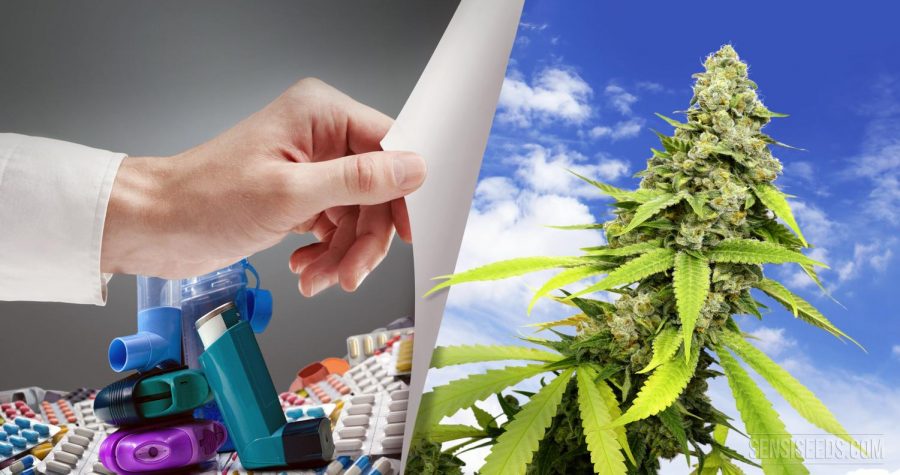Studies suggest cannabis for bronchial symptoms could be beneficial
Did you know that 8.9 million adults in the U.S. were diagnosed with chronic bronchitis in the past year? Chronic lower respiratory disease, including asthma, claim the lives of 135,268 people every year, according to the Centers for Disease Control and Prevention (CDC).
On top of that, the Asthma and Allergy Association of America (AAFA) reports that over 26 million Americans suffer from asthma, a condition that has been growing rapidly among all age, sex and racial groups since the early 1980s.
The good news is that cannabis could be the cure, with studies on the effects of cannabis for bronchial symptoms revealing some promising facts.
Link between cannabis for bronchial symptoms started in 1975
In 1975, a small and simple study was conducted by a team of researchers. The study on cannabis for bronchial symptoms was led by a man named Donald Tashkin, who worked closely with eight “clinically stable” asthma patients to determine how cannabis use impacted their airways.
The study subjects experienced artificially induced bronchial spasms, sometimes by means of intense exercise or by using methacholine inhalation.
A placebo or real cannabis containing two percent THC was then administered to the study subjects.
The study on cannabis for bronchial symptoms titled the “Effects of smoked marijuana in experimentally induced asthma” discovered that the placebo-using study subjects took on average 30-60 minutes to reach a recovered state. On the other hand, the cannabis-consuming study subjects recovered from respirator spasms almost instantly.
As a fairly old study that was conducted during a highly prohibitionist time, the outcome of the study opened people’s eyes.
Additional studies explore potential of cannabis for bronchial symptoms
A 20-year-long study kicked off in March 1985, concluding that asthmatic smokers who used cannabis in moderation experienced improved lung function, minus the lung damage noticeable in cigarette smokers. With numerous studies indicating the benefits of using cannabis for bronchial symptoms, the researchers took the next step to expose cannabis as a bronchodilator.
Back in 2014, researchers took it upon themselves to isolate bronchi samples from 88 study participants. A portion of the study subjects was healthy, while the rest were asthma patients.
Electrical stimulation was used to induce bronchial spasms, before THC and a number of synthetic cannabinoids were administered to the patient.
The research indicated how cannabinoids like THC activate CB1 receptors, resulting in the spasms stopping and the organs dilating. THC is the cannabis plant’s most psychoactive substance and despite its mind-altering qualities, it seems that the psychotropic cannabinoid amplified airflow into the lungs for people with chronic respiratory conditions.
Although THC’s non-psychoactive cannabinoid CBD (cannabidiol) is highly potent as a natural anti-inflammatory, THC is the clear winner when it comes to using cannabis for bronchial symptoms.
Cannabis for bronchial symptoms: THC has Potential
The findings of previous studies on cannabis for asthma and chronic respiratory conditions are backed up by the results of an animal study from 2015.
Six unique cannabinoids were investigated by researchers:
- THC
- CBD
- CBG
- CBC
- CBD-A
- THC-V
Would these cannabinoids have the potential to relieve airway constriction caused by inflammation? Interestingly, not all of the cannabinoids were capable of inhibiting contractions; just THC and THC-V inhibited contractions;
It must be noted that the effects of THC were significantly stronger than those of THC-V, which caused some negative effects by blocking specific CB1 receptors.








